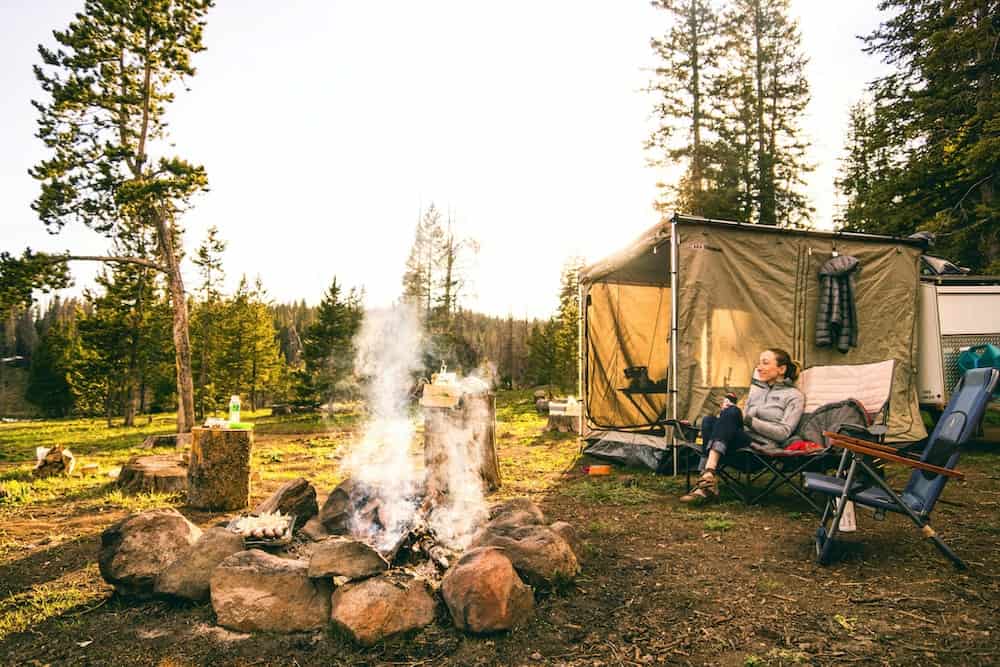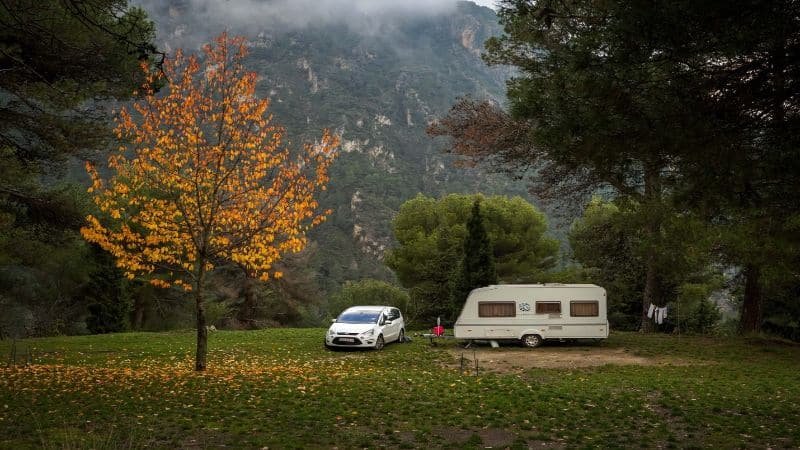Camping is a fun outdoor activity that appeals to people who love to be outdoors and appreciate nature. Most people prefer luxury, backyard, and RV camping. At the same time, others prefer sleeping under the stars, challenging themselves to survive in the wild, and hiking in the mountains.
Camping can help you escape the daily hustle and bustle of modern life and recover. It allows you to spend time in nature and appreciate it. Camping has many benefits for the environment and emotional, physical, and mental health. It also has some drawbacks. In this post, we have shared the camping pros and cons so you can make your camping trips better.
Pros of Camping
1. Stress Reliever
We are constantly under pressure at work, causing stress levels to rise. Camping is an excellent activity to reduce stress and restore work-life balance. Going on a camping trip will give you a break from your busy and stressful life and spend days in nature. Additionally, it helps us appreciate nature’s beauty and calm.
According to a study, spending time immersed in nature is a healthy way to reduce stress. If you want to unload your stress bag, try camping away from civilization and feel rejuvenated.

2. Inexpensive Vacation
A fantastic advantage of camping is that it is an inexpensive vacation, making it accessible to many. Camping doesn’t require you to book flight tickets, make hotel reservations, and spend on expensive food. Instead, you only need a good pair of hiking boots, camping gear, and a first aid box.
It allows individuals to go kayaking, swimming, and cycling without spending a large sum. Additionally, you sleep in nature, under the open sky, which is a fantastic experience. Going camping is ideal if you are on a budget and want to spend your vacation with friends and family.
3. Sightseeing
We’re sure you have seen social media influencers posting pictures of scenic mountains and lakes. An easy, economical way to experience unique places is by hiking and camping in the wild. Camping is an excellent way to go by the waterfall and take pictures of a mountain.
Sightseeing is a great mood and Instagram feed booster. If you want to experience a sky full of stars, mornings on a mountain, and swimming in the river, make the time for camping.
4. Survival Skills
We are so used to the comforts of modern life that we take them for granted. An essential benefit of camping is that we learn how to survive without amenities. It makes us appreciate and be thankful for our essential dishwasher and microwave.
Learn how to hunt food, sleep in the wild, and survive without technology by going camping next summer.
5. Bonding Time and Physical Fitness
People are so busy with their work and life they forget how important it is to spend time with friends and family. Another benefit of camping is that we get to spend quality time with our loved ones. Moreover, being away from civilization and technology allows us to appreciate their presence and enjoy their company.
Additionally, camping is a great way to get back in shape. Hiking can help you get extensive cardio that will surely improve your health. Besides hiking, collecting woods for the bonfire and setting up tents are physically demanding tasks that require the use of strength. Doing these tasks will get you on your feet and provide your body the movement it craves.
Cons of Camping
1. Uncertain Weather
You can check the weather forecast before planning your camping trip. Still, your plans can be ruined by bad weather since it is unpredictable. There are higher chances of rain, storm, and lightning. Weather changes can be a point of concern for your camping trip.
Additionally, uncertain weather conditions increase the risk of health issues. People might suffer from hypothermia in extreme weather. Moreover, people with cardiovascular and respiratory issues have a greater chance of being affected by uncertain weather.
2. Accidents and Medical Emergencies
Another disadvantage of camping is the possibility of getting into accidents. Broken bones, concussions, cuts, bruises, and sprained ankles are among the common injuries campers can sustain. Additionally, falling off a mountain or into a river can be deadly.
Beginner campers need to plan their trip with more seasoned campers to learn the routes and safety and survival tips. Moreover, carrying a first aid box is crucial to attend to any injury and rush straight back.
3. Wildfires
Wildfires are one of the most common issues with camping. First-time campers don’t know how to start a fire safely. In addition, they can leave the fire unattended and not fully extinguished. Such negligence can result in wildfires, putting the lives of other campers in danger and disturbing the environment.
Campers need to learn the basics of campsite safety to avoid uncertain situations. Moreover, in case of a wildfire, contact the firefighting team and police immediately.
4. Wild Animals and Insects
One of the disadvantages of camping is the possibility of encountering dangerous wild animals like bears and snakes. Moreover, outdoors are breeding grounds for insects like ticks, wasps, ants, spiders, and mosquitoes. People who prefer wild or survival camping have a higher chance of coming across wild animals. However, parks and countryside areas provide security and safety for campers.
A clever way to avoid bears is to store your food in sealed containers as bears roam around searching for food. Moreover, investing in good quality and insect-resistant tents helps lower your chance of getting bit by one.
If you plan a long hike, cover your body with full-sleeved jackets and trousers. Additionally, carry a mosquito repellent with you and apply it every two hours, especially if it is hot.
Our Final Thoughts
Although camping is a great way to spend summer, it does have its drawbacks. We believe there are more benefits of camping than disadvantages. With proper research, safety guidelines, and durable camping gear, you will have a fun time away from your tiring life.
We hope our list of camping pros and cons helps you decide which camping experience you want to go on.
















